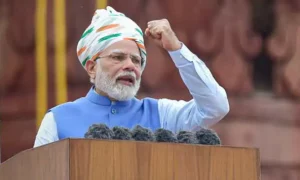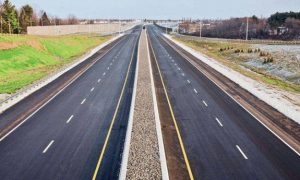The tax benefits on House Rent Allowance (HRA) are great relief to salaried people who stay on rented accommodation as in certain cases the entire HRA, which varies from 40-50 per cent of basic salary, becomes tax-exempt.
However, to avail the benefit, some people, who stay in their own or parental house, also show that they are staying in rented accommodations and are paying rent to spouse/relative or parents. This undue advantage probably has led to the scrapping of tax benefits on HRA and other allowances/deductions under the new income tax regime.
Hence, there will be no tax benefit under the new regime on staying in a rented accommodation. So, will it be better to purchase your own house instead of staying on rent?
However, apart from scrapping of tax benefit on HRA, no tax benefits will be available under the new regime on interest paid on home loan taken to purchase self-occupied residential property as well as on repayment of home loan principal.
Under the old income tax regime, however, an assessee — be a salaried or non-salaried — may avail benefit up to Rs 2 lakh in a financial year on interest paid on home loan (Rs 3.5 lakh, if loan is taken for purchasing an affordable house) and up to Rs 1.5 lakh on repayment of home loan principal.
So, under the new regime, there will be no tax benefits either on staying on rent or buying your own house by taking home loan. Even delaying house purchase to accumulate funds in order to minimise loan amount would result into rental outflow without any tax benefits under the new regime.
With no tax benefits on either staying in rented accommodation or on purchasing a house for self occupation on loan, what would be the impact on sale of residential properties?
“The real on-ground impact of the new tax regime will take time to show. From FY 2020-21, people will have the option to opt between the old tax regime or new tax regime which has lower slab rates, that people can enjoy while knocking off majority of tax benefits. People need to understand the benefits both the regime provides and calculate what’s better for them before deciding to go with any regime,” said Rohit Poddar, Managing Director, Poddar Housing and Development Ltd. and Joint Secretary, NAREDCO Maharashtra.
“Home loan is one of the biggest tax-saving instruments available today and people can claim a tax-deduction up to Rs 1.5 lakh by repaying the loan principal through EMIs and pre-payments under Section 80C of the Income-Tax Act. They can also claim further tax-deduction up to Rs 2 lakh through home loan interest amount under Section 24B of the I-T Act. This becomes useful in the initial years of the home loan when the interest payments are the highest. This largely means that home buyers can claim tax deductions up to Rs 3.5 lakh on annual home loan repayment which translates to tax savings of up to Rs 1.08 lakh provided that the buyer is in the 30 per cent tax slab,” Poddar explained.
“First-time home buyers also get the tax deduction benefits of up to Rs 1.5 lakh under Section 80EEA for loans sanctioned during FY 2019-20 for the property below Rs 45 lakh with the size 645 sq.ft. in metros and 968 sq.ft. in other regions. Overall, a home buyer can save tax from quite a few components in the income tax regime — thanks to Sec 80C and 24B, along with Sec 80EE or 80EEA of the I-T Act,” he added.
So, under the new regime, decision of buying a house would not governed by income tax benefits, but on the basis of need and merit of the product/asset under consideration, believes Vivek Rathi, Director, Research, Knight Frank India.
‘Supporting house consumption — ownership as well as renting — has been a traditional focus area from the income tax perspective. Income tax benefits around interest and principal repayment for housing loans had garnered increased attention from the union government until last year and this also built a strong premise for house purchase decision by individuals,” said Rathi.
“With the new income tax regime and the way forward for subsequent budgets, which shall do away with such sectoral exemptions, house purchase decision will be based purely on the merit of the product/asset under consideration. In the short term, this shall be a disadvantageous proposition for such consumption categories. In the long term, it should build a stable market with a strong product premise,” he added.
However, Anuj Puri, Chairman, ANAROCK Property Consultants, believes that there will be hardly any impact of changes in taxation on decision to buy house properties.
“As per the new provisions in the Union Budget, individual taxpayers have been given the option to follow the previous tax regime wherein they can claim deductions under various sections and pay taxes at higher rates. Alternately, they may now follow an easy option of not claiming any deductions including Section 24 and others and pay taxes under the new lowered rates,” said Puri.
“At the onset, even while the new tax regime is simple for an individual, but it has taken away the fiscal incentive given to individuals — especially young buyers — to purchase a property. However, its impact may not be as significant as one may think because those looking to buy property will inevitably go for it irrespective of incentives being there or not. Similarly, those looking to rent a house will not defer their decision simply because he/she cannot claim HRA benefits,” he said.
“While incentives such as these do help in boosting buyer sentiments, they don’t help in making significant real estate plays. Thus, the impact will be limited as such,” he added.
“Further, it is still too early to gauge the “real” impact of this move (no benefits on home loans or HRA) on the real estate as it will also depend on the number of taxpayers opting for the old or the new tax regime which will ultimately be known only towards the end when individuals file their returns,” Puri further said.
“As per the government, out of the total returns filed by nearly 5.78 crore people in FY 2018-19, only 10 per cent claimed deductions more than Rs 2 lakh and just 3.77 lakh people claimed deductions more than Rs 4 lakh. If we consider this data, then those claiming most deductions is only a handful. Hence, the impact will be limited,” he explained.




































